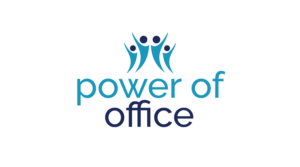Running a small business today requires more than passion and hard work. The competition is strong, and digital presence shapes how customers discover, trust, and interact with brands. For small businesses, the right digital marketing tools act as a lifeline. They save time, reduce costs, and create opportunities to reach more people.
In this article, we explore the best digital marketing tools for small business owners. The goal is to guide you through practical choices that can help build visibility, improve campaigns, and grow revenue.
Why Small Businesses Need Digital Marketing Tools
Traditional marketing no longer provides enough reach for most businesses. Consumers search online first, compare options, and then make a decision. Small businesses often work with limited staff and budgets, so the question becomes: how to compete with larger players?
Digital marketing tools give smaller brands a fair chance. They automate daily tasks, provide accurate insights, and allow owners to focus on strategy. From building websites to managing social media and tracking analytics, these tools reduce guesswork and increase efficiency.
Categories of Digital Marketing Tools
Digital marketing tools fall into several categories, each with a specific role:
- Website and Content Management – Build and manage a professional site.
- Search Engine Optimisation (SEO) – Improve visibility on Google.
- Social Media Management – Schedule posts and engage with audiences.
- Email Marketing – Communicate directly with customers.
- Analytics and Reporting – Track results and guide decisions.
- Design and Creative Tools – Create professional visuals.
- Advertising and Paid Media – Run effective campaigns on Google or social networks.
Let us now review the best digital marketing tools in each category, with a focus on small businesses.
1. Website and Content Management Tools
A strong website is the foundation of online marketing. Without it, other efforts may not deliver results.
- WordPress: The most popular platform for small businesses. It offers thousands of themes, plug-ins, and integrations. Owners can create blogs, service pages, and even online shops.
- Wix: Known for simplicity and drag-and-drop design. Ideal for small businesses with little technical expertise.
- Shopify: Best for e-commerce businesses. It provides secure checkout, inventory management, and marketing integrations.
A small business should choose a platform based on budget, product range, and ease of use.
2. SEO Tools
SEO makes your website visible in search results. Without it, potential customers may never discover your business.
- SEMrush: Offers keyword research, competitor analysis, and backlink audits. Excellent for businesses serious about SEO growth.
- Ahrefs: Known for detailed backlink data and competitive insights. It helps identify content gaps and ranking opportunities.
- Ubersuggest: Affordable and beginner-friendly. Provides keyword ideas, domain analysis, and traffic reports.
For small businesses, starting with Ubersuggest or SEMrush can provide a clear path for growth.
3. Social Media Management Tools
Social media is where small businesses can build personality and connect with customers. Managing multiple platforms manually is time-consuming, so tools are necessary.
- Buffer: Simple scheduling and analytics. Suitable for businesses focusing on consistent posting.
- Hootsuite: Provides scheduling, monitoring, and reporting in one dashboard.
- Later: Strong for Instagram marketing, with visual planning features.
The choice depends on which platforms your audience prefers. A business focusing on visual content may find Later more effective, while a service provider may benefit from Hootsuite.
4. Email Marketing Tools
Email marketing remains one of the most cost-effective methods of communication. It allows businesses to send personalised messages, promotions, and updates.
- Mailchimp: Popular for small businesses due to its free plan and easy design tools.
- Sendinblue: Offers both email and SMS campaigns. Good for businesses looking to diversify communication.
- ConvertKit: Favoured by creators and consultants. Supports automation and simple landing pages.
Email tools also provide data on open rates, clicks, and conversions, which helps refine future campaigns.
5. Analytics and Reporting Tools
Data shows what is working and what is not. For a small business, investing in analytics avoids wasted money on ineffective strategies.
- Google Analytics 4: Free and powerful. Tracks website traffic, customer journeys, and conversions.
- Google Search Console: Essential for understanding search performance. Shows keyword rankings, clicks, and site errors.
- Hotjar: Provides heatmaps and user recordings. Helpful to see how customers interact with your website.
With these tools, a small business gains insights that can directly improve marketing decisions.
6. Design and Creative Tools
Professional visuals play a major role in marketing. Customers notice design before reading text, so creative tools are essential.
- Canva: User-friendly and affordable. Offers templates for social posts, presentations, and marketing materials.
- Adobe Express: A lighter version of Adobe tools, good for quick but polished graphics.
- Figma: Useful for collaborative design, especially if a team is involved.
Even with no design skills, small business owners can produce professional content using Canva.
7. Advertising and Paid Media Tools
Paid advertising can deliver quick visibility. Managing ads correctly prevents waste and boosts returns.
- Google Ads: Reach customers searching for services or products. Provides measurable targeting and results.
- Facebook Ads Manager: Suitable for targeting by interests, demographics, or behaviour. Affordable for small budgets.
- LinkedIn Ads: Best for B2B businesses wanting professional leads.
Paid media can be expensive, but when used with analytics, it supports strong growth.
How to Choose the Right Tools
Small businesses must avoid trying every tool available. Instead, start with three questions:
- What is the immediate business goal?
Is it brand awareness, lead generation, or direct sales? - What resources are available?
Consider budget, team size, and time. - What platforms do customers use most?
A B2C food delivery start-up may focus on Instagram and Facebook. A B2B consultancy may invest more in LinkedIn and SEO tools.
By matching tools with goals, small businesses reduce waste and achieve measurable progress.
Trends Influencing Digital Marketing Tools in 2025
Digital marketing tools evolve with technology. Here are current trends shaping their use:
- AI and Automation: Many tools now use AI to predict customer behaviour, create content drafts, or manage bidding in ads.
- Voice Search Optimisation: With more people using smart devices, SEO tools now support voice-based queries.
- Data Privacy: Tools are focusing on compliance, giving users control over data and consent.
- Integration: Businesses prefer platforms that connect multiple functions, such as email plus CRM.
Staying updated with these trends helps small businesses remain competitive.
Practical Steps for Small Businesses
- Start small. Select one tool from each major category rather than investing in many.
- Monitor performance monthly. Do not rely on assumptions; use analytics.
- Combine free and paid tools. Google Analytics and Canva free versions already cover many needs.
- Review tools annually. Business needs change, and so should the tools.
Final Thoughts
The best digital marketing tools for small business are not always the most expensive. They are the ones that match specific goals, fit within budget, and simplify daily operations.
A good strategy is to begin with a reliable website platform, an SEO tool, a social media manager, and analytics. Once these are in place, expand into email marketing, design tools, and advertising.
By making informed choices, small businesses can compete with larger brands, build stronger relationships with customers, and secure steady growth in the digital space.
Small businesses thrive when armed with the right digital tools to boost visibility and engagement. Platforms like analytics dashboards, social media schedulers, and automated email systems streamline operations while amplifying brand presence. Partnering with experts such as Jives Media can further elevate a company’s digital footprint through data-driven strategies and creative marketing solutions. From SEO optimization to targeted ad campaigns, these tools help small businesses compete on a global scale. With innovation at your fingertips and expert guidance leading the way, achieving online growth becomes not just possible—but inevitable.
Q1. What are the best free digital marketing tools for small businesses?
Some of the best free tools include Google Analytics for website tracking, Google Search Console for SEO monitoring, Canva for basic design work, Mailchimp’s free plan for email marketing, and Buffer for social media scheduling. These tools cover most core needs without heavy costs.
Q2. Which digital marketing tools are most useful for small e-commerce businesses?
For e-commerce, Shopify or WooCommerce helps with store management, SEMrush or Ahrefs supports SEO growth, and Google Ads delivers targeted traffic. Social media platforms like Instagram and Facebook, managed via Hootsuite or Later, are also effective for product promotion.
Q3. How do I choose the right digital marketing tool for my business?
The best way is to match tools with your business goals. If the aim is brand awareness, focus on social media management. For direct sales, advertising and SEO tools should be a priority. Always consider budget, team size, and customer platforms before making a choice.
Q4. Do small businesses really need paid tools, or are free ones enough?
Free tools are excellent for starting out, but as your business grows, paid versions often provide advanced features such as detailed reporting, automation, and integrations. Many small businesses use a mix of free and paid tools depending on their stage of growth.
Q5. What digital marketing tools are best for B2B small businesses?
LinkedIn Ads and LinkedIn Analytics are highly effective for B2B leads. HubSpot offers CRM and marketing automation, while SEMrush helps with content and SEO. Email marketing platforms like Sendinblue or ConvertKit are also valuable for nurturing professional relationships.

